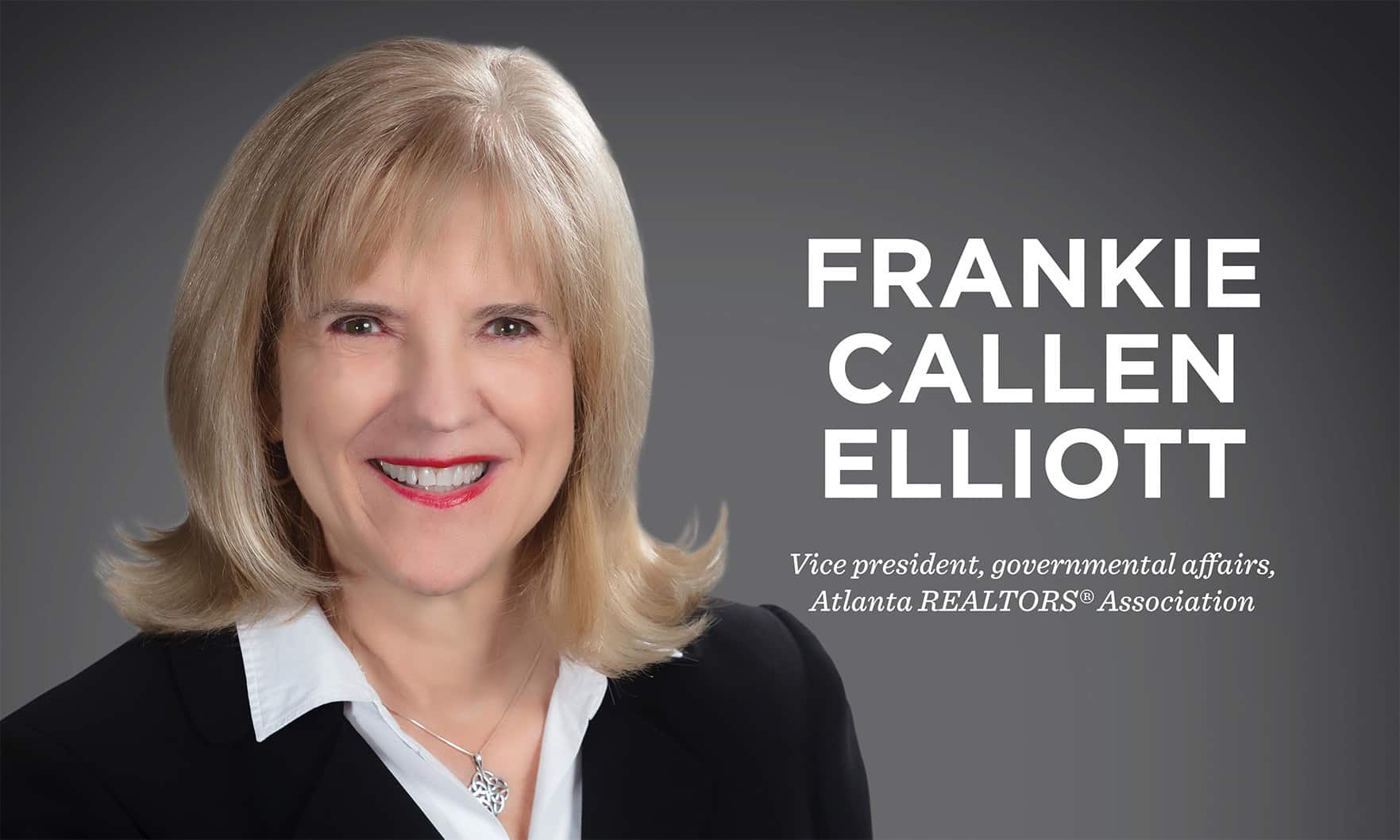Oftentimes my role as a government affairs professional for several REALTOR® organizations in the Atlanta area is to help bring our members to the table, at each level of government, when housing or property rights are on the agenda. Increasing over the last few years, housing issues, property rights, short-term rentals, property and investment taxes and land use policy have dominated the agendas of all levels of government.
Let’s be honest, you don’t have to be a real estate expert to know there is a severe shortage of housing in the Atlanta metro area. The lack of housing inventory is not unique to the Atlanta market, and most cities across the country are struggling to provide safe, quality housing for their residents.
In her book, “The Fixer-Upper: How to Repair America’s Broken Housing System,” author Jenny Schuetz points out that even before the pandemic, the U.S. was failing to build enough housing units to meet the demands brought on by population and job growth. Furthermore, she claims, “The shortfall is particularly apparent in metro areas with an abundance of well-paying jobs and amenities; the places where many people want to live consistently build too little housing.” Sound familiar?
The reason for the shortfall, according to Schuetz, is “the policies that regulate land use and housing production make it extremely difficult to add more homes in desirable locations. In every state across the country, it is illegal for a landowner or developer to build new homes (or alter or tear down existing homes) without explicit approval from the local government. And the people who already live in those places wield a variety of legal and political tools — zoning laws, historic preservation, environmental regulations and direct lobbying of elected officials — to block attempts to build more homes.”
While Schuetz’s declaration is valid and fitting to what we have seen carried out in some jurisdictions in the metro Atlanta area, I don’t think it’s appropriate nor helpful to place the entire blame for our housing shortage on local governments. There are many other issues that are beyond the reach of local governments, such as financing, public sentiment, market conditions, land costs, etc., that affect housing development.
Nevertheless, the role of local governments in housing development is significant and cannot be overstated. Similarly, the public input process required by most local governments provides the greatest opportunity for the real estate industry to affect local housing policy and future land use plans.
In my experience, most local governments and regulatory agencies appreciate the substantive, experienced, and creative input from REALTORS® and other real estate professionals when it comes to housing design, market trends, and market demands.
As a regional community, if we truly hope to be successful in increasing the availability of additional housing units in our communities, our dialogue, approach and the solutions we put in place to achieve this goal will require a significant shift from how we have addressed housing issues in the past.
Over the next few years, all of us will have to adapt to the changes in housing development that we know are coming. We have to have rational and constructive conversations regarding zoning changes, and higher density in appropriate areas. We have to step back and consider different types of housing units and design standards that may not fit into our traditional or preferred idea of suburban living. We have to engage more thoughtfully in housing policy and begin building public consensus that will support opportunities for the development and redevelopment of more housing stock.
I get it – change is hard. But it’s also necessary.
As a local real estate professional, you are the most impactful advocate for housing policy in your community. You bring unparalleled experience and first-hand market information to the discussion. You have the unique opportunity to lay the foundation for the future of housing in our region.
Take advantage of this opportunity. It’s your voice. Make it count.
Frankie Callen Elliott is vice president, governmental affairs, for the Atlanta REALTORS® Association.


One idea. Put those zoning and planners back into the office downtown, so the citizen can actually learn how to expedite the subdivision process. UNBELIEVABLE how difficult it has become. It is ridiculous for this process to be so difficult. Christian Olteanu leaving the city was a GREAT loss for the Planning division.